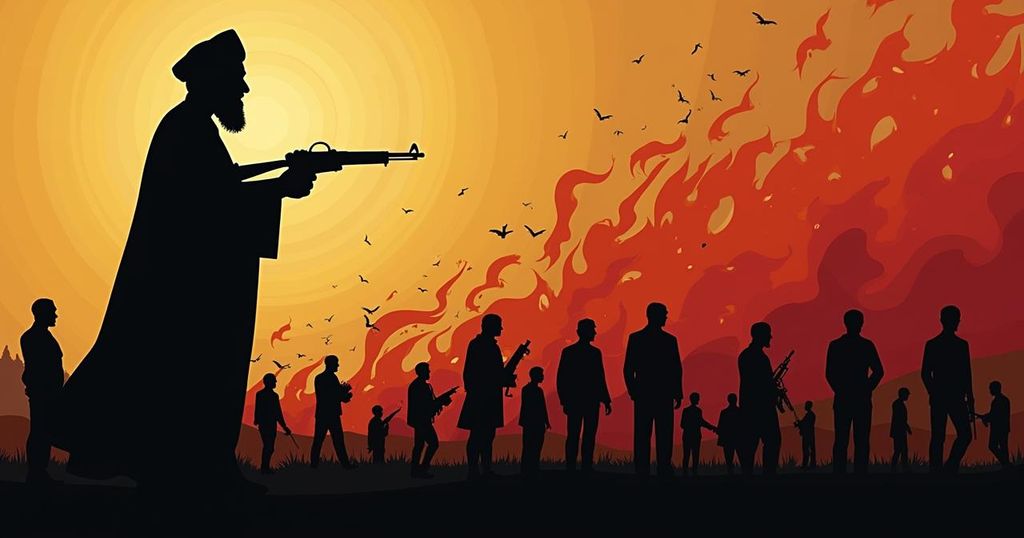Iran Vows Revenge Following Assassination of Hezbollah Leader Hassan Nasrallah

Iran’s Supreme Leader, Ayatollah Ali Khamenei, responded to Hassan Nasrallah’s assassination by stating it “will not go unavenged” during a period of national mourning. Following the Israeli airstrike that killed Nasrallah and an Iranian general, fears of regional war have escalated. Khamenei called for support of Hezbollah but avoided direct threats of retaliation against Israel, indicating a cautious approach amidst ongoing tensions in the Middle East.
Following the assassination of Hezbollah leader Hassan Nasrallah in an Israeli airstrike, Iran’s Supreme Leader, Ayatollah Ali Khamenei, declared that the leader’s death “will not go unavenged.” This statement was issued during five days of national mourning in Iran, where Nasrallah was glorified as a martyr and symbol of resistance. Iranian sources have reported that an Iranian Revolutionary Guards general also perished in the strikes, elevating concerns of a broader conflict in the region amidst ongoing tensions between Israel and Hezbollah. In a recent military operation, Israel claimed to have targeted Nasrallah, stating that he was responsible for countless attacks against them. The strike occurred in a year marked by significant violence, intensifying fears of an all-out war. Although Khamenei condemned the attack and called for solidarity with Hezbollah, he refrained from issuing direct threats of retaliation, seemingly to avoid escalation with Israel. The geopolitical landscape in the Middle East remains precarious, with Iran’s response to Nasrallah’s death critical in shaping future actions. The Iranian leadership has not avenged previous killings of Hamas leaders, suggesting a cautious approach to retaliation against Israel. Reports indicate heightened security measures around Ayatollah Khamenei, with ongoing communications between Iran and its allied groups, as Iran assesses the situation’s evolution. The Israeli strikes have resulted in significant damage, particularly in Hezbollah’s stronghold in Beirut, signaling a severe escalation in hostilities. Confirming Nasrallah’s death, Hezbollah has remained silent on Israeli claims regarding additional casualties, reflecting the intense pressure and uncertainty surrounding the group following this pivotal moment.
This article addresses the assassination of Hassan Nasrallah, the leader of Hezbollah, in an Israeli airstrike, which has prompted a significant reaction from Iran’s leadership. Nasrallah was a prominent figure in the resistance against Israel and has garnered a legendary status among his supporters. The broader context includes ongoing tensions since the start of the year, marked by cross-border conflicts and violent exchanges between Israel and Hezbollah, significantly influenced by the recent war in Gaza. The implications of Iran’s and Hezbollah’s next moves are central to the stability of the region, particularly given Iran’s role as a primary backer of Hezbollah through funding, training, and military support via the Islamic Revolutionary Guard Corps (IRGC).
In conclusion, the assassination of Hassan Nasrallah has generated a profound reaction from Iran, promising that his blood will not go unavenged. Ayatollah Khamenei’s cautious stance highlights the complexities of retaliating against Israel without provoking further conflict. Iranian security measures have intensified, and the ongoing communications with allied groups signal a strategic assessment of future actions. The region stands on a precarious precipice, awaiting Iran’s decisions that will undoubtedly shape the Middle Eastern geopolitical landscape ahead.
Original Source: www.bbc.com








